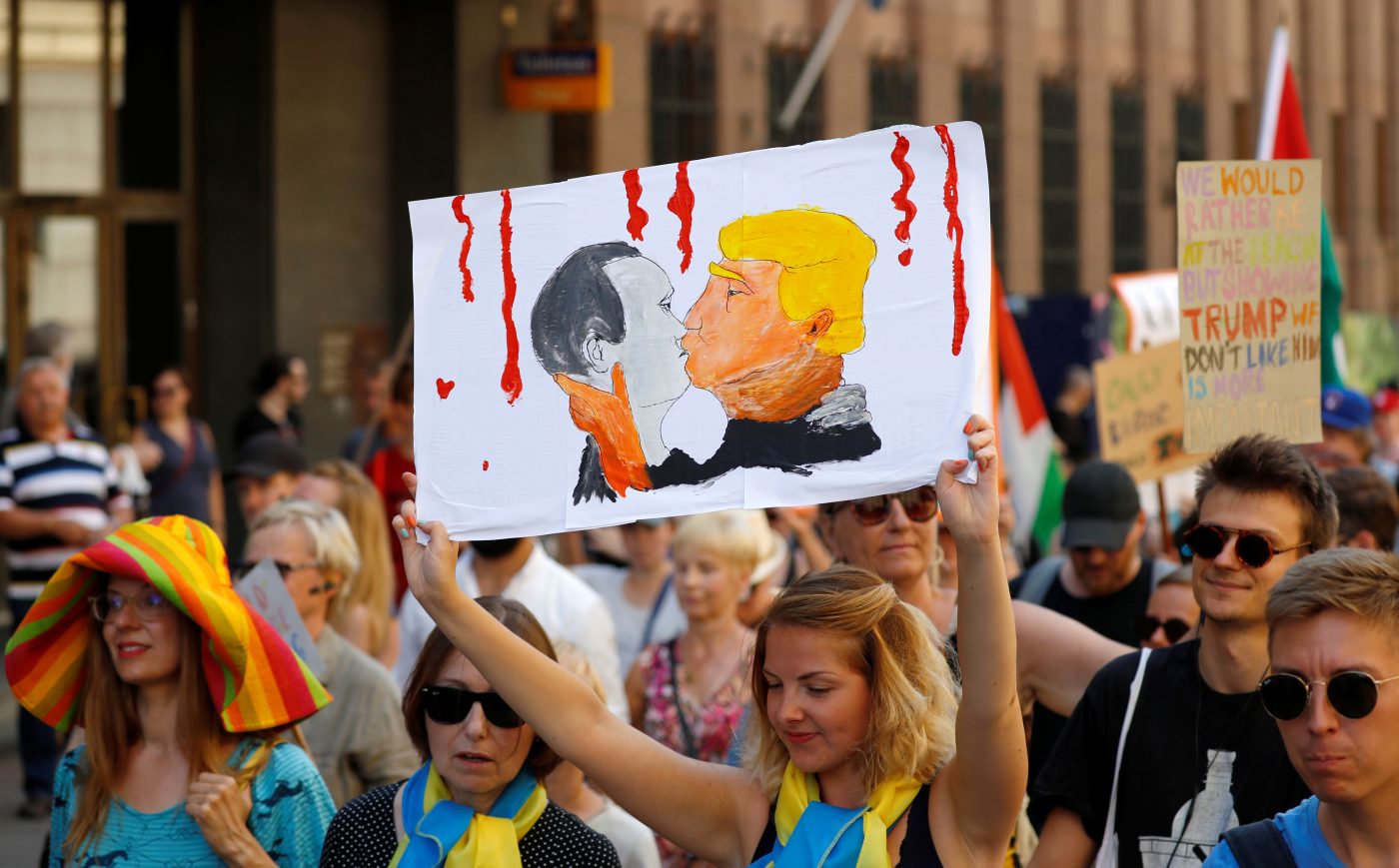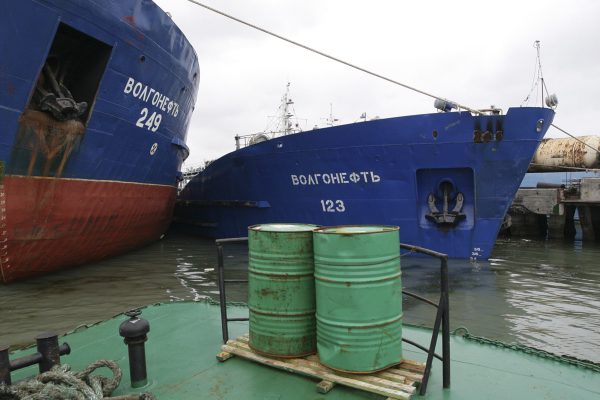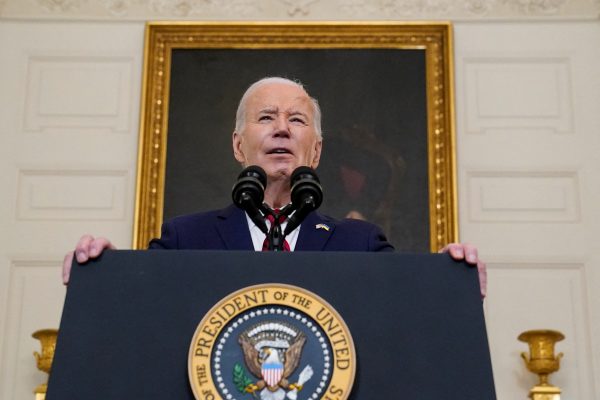Amidst Russia’s escalating threats to NATO allies, the recent statements by Donald Trump have yet again raised profound questions about the future of transatlantic security should he win in November.
Trump told the rally: “One of the presidents of a big [European] country stood up and said, ‘Well, sir, if we don’t pay and we’re attacked by Russia, will you protect us?’ I said, ‘You didn’t pay, you’re delinquent?’ He said, ‘Yes, let’s say that happened.’ ‘No, I would not protect you. In fact, I would encourage them to do whatever the hell they want. You gotta pay. You gotta pay your bills.”
His words to the rally in Conway, South Carolina on February 10, can only reasonably be read as threatening to encourage Russia to attack NATO members failing to meet their “defense spending obligations.” The comments sent shockwaves throughout Europe, and beyond, and have evoked criticism from already nervous NATO allies.
Some may interpret Trump’s comments as no more than electioneering. But these statements by a presidential candidate will certainly raise already substantial fears that his real agenda is to weaken and potentially de-fang a hugely successful alliance at the expense of the European continent.
We may never know whether Trump’s supposed conversation actually happened, but one thing is for sure — his evident willingness to, yet again, cozy up to Vladimir Putin, a fugitive from international justice, and perhaps to send an even more sinister message; as we know, Putin’s disinformation warriors made significant efforts to sway the 2016 and 2020 presidential votes.
With Trump eyeing a return to the White House amid looming federal indictments, his seeming appeal to Russia underscores the urgency of addressing foreign interference in democratic institutions. The specter of a leader willing to sacrifice international stability for personal gain should be deeply alarming and a warning of what will come should Trump win.
Trump’s assertion, calling for a departure from the longstanding commitments to collective defense enshrined in the NATO treaty and again advocating for the abandonment of such commitments sends a chilling message, particularly to NATO members in Central and Eastern Europe who keenly feel the threat of Russian aggression.
This is not new. During the 2016 election and throughout his presidency, Trump repeatedly questioned the value of NATO and raised doubts about America’s willingness to uphold its treaty obligations. While President Biden has sought to repair the damage done to transatlantic relations, Trump’s recent remarks serve as a reminder of the uncertainty surrounding US foreign policy.
Trump’s affection for the Kremlin stretches back to the Soviet Union. In 1987, right after returning from a trip there, Trump paid to place a full-page ad in major newspapers, attacking America’s allies and alliances. In the decades after, Trump went on to engage in lucrative dealings with Russian officials and mafia figures, who allegedly accounted for a significant portion of the income generated by his properties.
The risk now is clear, as it was in 2016 — that the media will focus in on President Biden’s age, making it the top story, while relegating increasingly alarming statements from Trump. While the former dominates headlines, the latter, which poses a significant threat to European and global security, is reduced to secondary importance.
Let’s be clear — European NATO is not ready to fight, even though it is fast-raising defense expenditure. Russia’s switch to a war economy is ringing alarm bells. Over recent weeks, Bundeswehr General Inspector Lt. Gen. Carsten Breuer stated that Germany’s armed forces needed to prepare for war within five years. Other senior security officials have said the crisis may come in as little as three years.
In the Baltics, Latvia, Lithuania, and Estonia have taken proactive steps to bolster their defenses by signing an agreement to create a common defense line along NATO’s eastern border. Similarly, the United Kingdom’s top army commander, Gen. Patrick Sanders, has called for a “citizen army” and a readiness to fight in a land war, citing Russia’s ongoing war against Ukraine.
Meanwhile, the Republican Party’s foreign policy paralysis of Ukraine, orchestrated at the direct behest of Trump, has dire consequences for Ukraine’s ability to defend itself against Russian aggression and daily attacks.
With vital military aid disrupted since October, Ukraine faces a critical shortage of ammunition and weapons, forcing them to ration resources and resulting in an alarming increase in the daily death toll from Russia’s attacks.
This abandonment of support not only results in Ukrainian deaths but also emboldens Putin’s expansionist ambitions, posing a grave threat to regional stability, and to US national and global security.
Adding to the sabotage of the critical Ukrainian aid package, Trump’s loyalists in the House of Representatives continue taking various steps to disrupt our commitments abroad. Last year, far-right Rep. Majorie Taylor Greene introduced an amendment to the National Defense Authorization Act calling for US withdrawal from NATO.
In response to Trump’s remarks, NATO Secretary-General Jens Stoltenberg swiftly reaffirmed the alliance’s unwavering commitment to mutual defense. His resolve stance echoes the sentiments of many NATO leaders, emphasizing the indispensability of collective defense in the face of external threats.
Charles Michel, the president of the European Council, which comprises Europe’s heads of government and defines their common policies, wrote that “reckless statements” like Trump’s “serve only Putin’s interest.” He stated that they make more urgent Europe’s nascent efforts to “develop its strategic autonomy and invest in its defense.”
And in Berlin, Norbert Röttgen, a conservative member of the German parliament’s foreign affairs committee, wrote on X (formerly Twitter) that: “Everyone should watch this video of #Trump to understand that Europe may soon have no choice but to defend itself.” He added, “Anything else would be capitulation and giving up on ourselves.”
A possible future President’s ongoing affection for Russia and his disruptive actions on the international stage, coupled with the media’s disproportionate focus on trivial matters, should worry us all.
Trump continues to interfere with and disrupt the administration’s foreign policy. His outrageous statements and actions warrant a far greater danger than Biden’s age.
Olga Lautman is a non-resident senior fellow at the Center for European Policy Analysis (CEPA), the host of the Kremlin File podcast , and an analyst/researcher focusing on Russia, Ukraine, and Eastern Europe.
Europe’s Edge is CEPA’s online journal covering critical topics on the foreign policy docket across Europe and North America. All opinions are those of the author and do not necessarily represent the position or views of the institutions they represent or the Center for European Policy Analysis.





